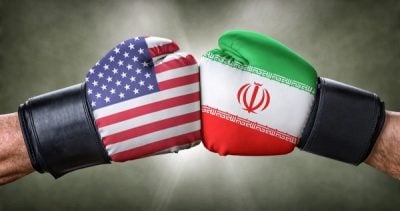US Tensions with Iran Reignite as Dollar’s Petro-Currency Status Under Threat

All Global Research articles can be read in 51 languages by activating the Translate Website button below the author’s name.
To receive Global Research’s Daily Newsletter (selected articles), click here.
Click the share button above to email/forward this article to your friends and colleagues. Follow us on Instagram and Twitter and subscribe to our Telegram Channel. Feel free to repost and share widely Global Research articles.
***
Only two weeks after Saudi Arabia announced an effort to establish diplomatic ties to Iran in a deal mediated by China, more news surfaced that Saudi Arabia was also planning to reopen its embassy in Syria for the first time in over a decade. Rumors are swirling that Iran, Saudi Arabia and Syria are on the verge of geopolitical and economic agreements that sidestep the US. It is perhaps not surprising that just as these deals are being announced, there has been a sudden resurgence of fighting between US forces in Syria and Iran supported insurgent groups in the eastern region of the country.
Joe Biden addressed the issue in a short statement, asserting that his administration is ‘not seeking conflict with Iran’, but that the US government would act to protect its personnel deployed in Syria. The comments were a response to an apparent drone strike on a US military instillation in Syria which killed at least one American contractor and injured several others. Biden has authorized airstrikes against Iran backed forces in Syria as retaliation, though, it should be noted that no evidence has yet been presented of Iranian involvement.
The eruption of direct conflict has the potential to escalate tensions with the Syrian government and Iran, and the timing of the event is highly suspicious.
In January of this year at the annual Davos conference run by the WEF, Saudi Arabia announced it was now open to trading oil for Chinese Yuan instead of US dollars (long valued as the global petro-currency). The economic shift, if Saudi Arabia follows through, could change the very fabric of the global economic landscape as the dollar loses petro-status and even world reserve status.
China has been aggressively pursuing stronger economic ties to oil producing nations and the CCP announced its intention to turn the Yuan into a global petro-currency in December of 2022. Another important factor is Russia’s alliance with Syria’s government under Bashar al-Assad and their naval base in Tartus, which they have been expanding since 2021.
Why is the US military still in Syria? It’s hard to say. No US president since Barack Obama has offered a rational explanation. Syria continues to act as a remnant of establishment war-hawk policies from the Bush era, with Obama, Biden and Hillary Clinton using the conflicts in Iraq and Afghanistan as a jumping-off point for their covert Arab Spring operations, including the Pentagon funding and training of groups that would later become ISIS terrorist factions.
In theory, Syria stands as a possible powder keg for wider regional wars that certainly serves the interests of establishment globalists if their goal is geopolitical chaos. The confluence of eastern interests is bound to clash with the US military occupation eventually. Furthermore, the growing threat of international economic warfare and even a currency war over smaller conflagrations like Ukraine is not being addressed.
Did Iran-backed militants really attack US forces in Syria? Or, is the flare up in tensions with Iran merely designed to throw a monkey wrench into diplomatic negotiations between Saudi Arabia, Iran, Syria and China? Or, is Biden leading America towards an economic conflict that will eventually destroy the dollar?
If the third scenario is the case, who ultimately benefits?
*
Note to readers: Please click the share buttons above. Follow us on Instagram and Twitter and subscribe to our Telegram Channel. Feel free to repost and share widely Global Research articles.

